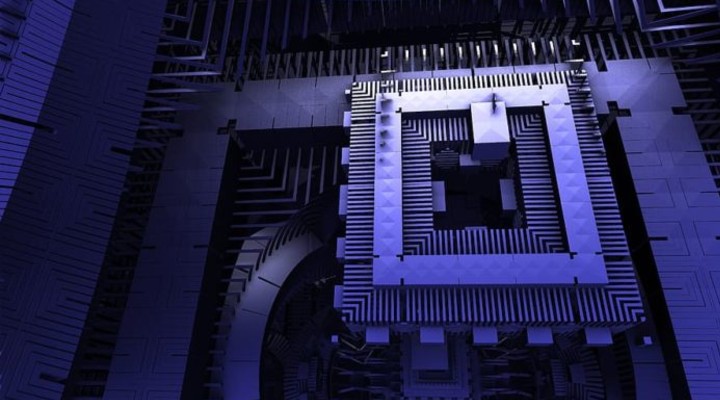When we study physics one thing that we are always told, is that it is definite. Either it can be something it or it cannot be. Right?
Wrong. As opposed to the Newtonian theory of light’s nature as a particle, in the late 19th century, Albert Einstein revived light’s wave nature. The nature of light as the wave was proposed by Huygens but was dismissed because of Newton’s reputation. However, later it was established that light is “both a particle and a wave”, its essential theory was further evolved from electromagnetics into quantum mechanics.
If you did not understand anything that’s written above just skip the jargons and read along with the wonderful manifestation of quantum physics in computing. Here is the simple definition of the concept behind Quantum Computing.
The data is stored in a computer in the Boolean form, i.e in sets of 0 and 1. All digital circuits that we have presently are all dependent on this Boolean concept of data storage. You can say that all the computer circuitry that we have today, understands boolean logic; that is the manifestation of data and information in 0s and 1s.
Quantum Computing challenges the present advances in digital electronics technology. Now data can exist in multiple bits, anything between 0 and 1.
Here is an example to illustrate it:
The lowest unit of memory is a bit. (Take it analogous to cell ‘the building block for the body’). A bit can be either 1 or 0. 8 bits make 1 byte. 1024 bytes as 1KB, 1024 KBs as 1 MB and so on. So for 1 byte, there can be 16 possible combinations in which data can be stored.
For quantum computers, the smallest unit of memory is called Quantum Bit aka Qubit. A qubit can exist in both states simultaneously (0 and 1), as well as many other states in between. Now as opposed to the traditional concept Qubits can hold much more data, that gives rise to faster parallel computing.
The future is very promising as computer scientists working on quantum computers believe that it will be possible to harness these mechanisms and build computers which will be millions of times more efficient than anything available today. Here are some of the real-world problems that Quantum Computers are expected to solve.
With a lot of businesses and transactions online, the last decade had seen a 100% increase in data breaches by nefarious hacker groups holding digital businesses hostage for ransoms. Quantum computers will revolutionize data security as we see today. Even though quantum computers would be able to crack many of today’s encryption techniques, predictions are that they would create hack-proof replacements.
Even though Quantum Computers is the thing for the future, don’t expect it to be a regular home use computer. The computers that we have now is not going to go anywhere or be replaced by Quantum Computers. In fact, classical computers are better at some tasks than quantum computers (email, spreadsheets and desktop publishing to name a few).
Given the faster processing speed, Quantum computers are great for solving optimization problems. From figuring out the best way to schedule flights at an airport to determining the best routes on Google Maps things will be more efficient. Recently, Google announced its indigenous quantum computer 100 million times faster than any classical computer in its available.
Now that you have a brief idea of what a quantum computer can do, let’s see what some of its advocates have to say about this.
Satya Nadella, Microsoft CEO:
“The world is running out of computing capacity. Moore’s law is kinda running out of steam … [we need quantum computing to] create all of these rich experiences we talk about, all of this artificial intelligence.”
Seth Lloyd, author of Programming the Universe:
“A classical computation is like a solo voice – one line of pure tones succeeding each other. Quantum computation is like a symphony – many lines of tones interfering with each other.”
Jeremy O’Brien, a physicist at the University of Bristol:
“In less than 10 years quantum computers will begin to outperform everyday computers, leading to breakthroughs in artificial intelligence, the discovery of new pharmaceuticals and beyond. The very fast computing power given by quantum computers has the potential to disrupt traditional businesses and challenge our cybersecurity.”
While the world is optimistic to revolutionize a lot of things by using Quantum Computers, building one is no less than a scientific conundrum.
With the sub-polar requirement of temperatures, Quantum computing requires extremely cold temperatures, as sub-atomic particles must be as close as possible to a stationary state to be measured. The cores of D-Wave quantum computers operate at -460 degrees f, or -273 degrees c, which is 0.02 degrees away from absolute zero. So don’t be surprised if the arctic and antarctic is the next destination to claim information supremacy



